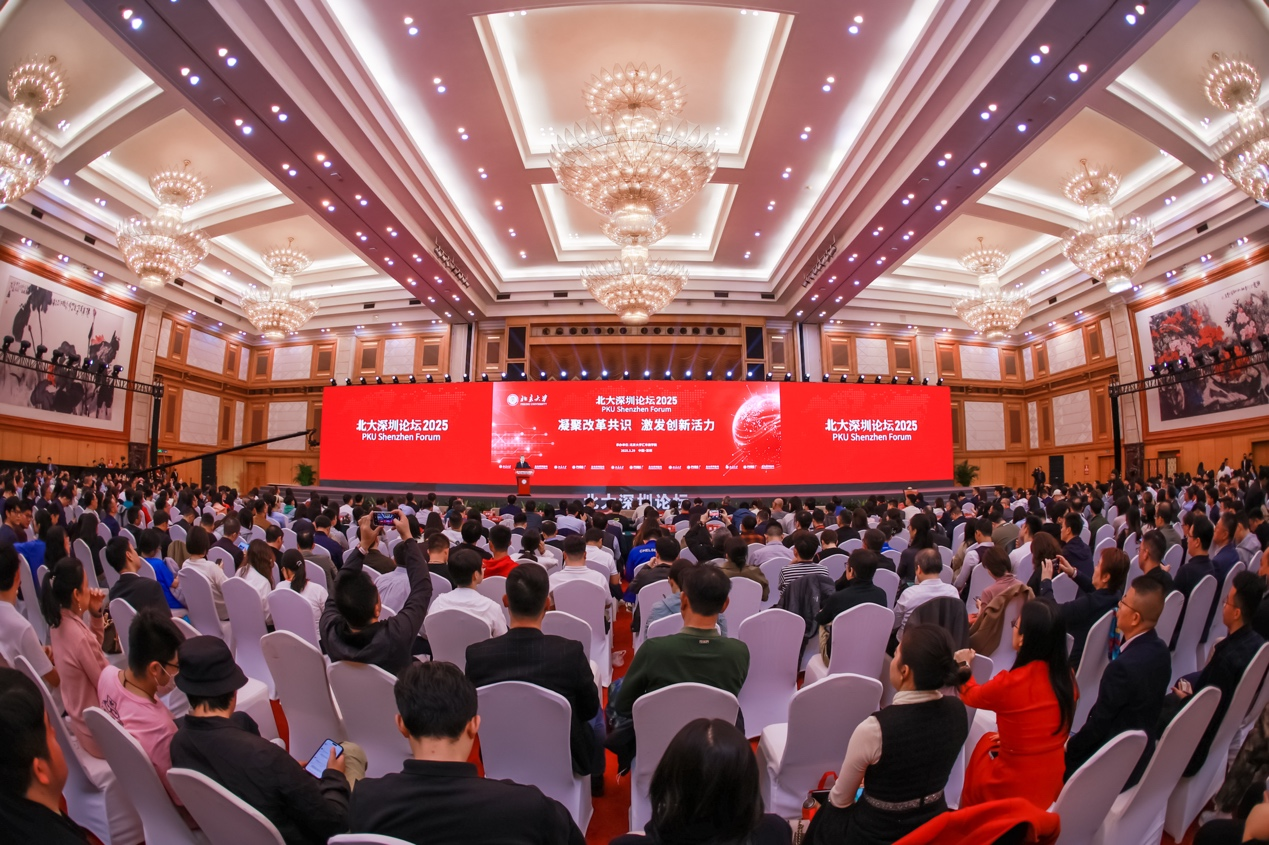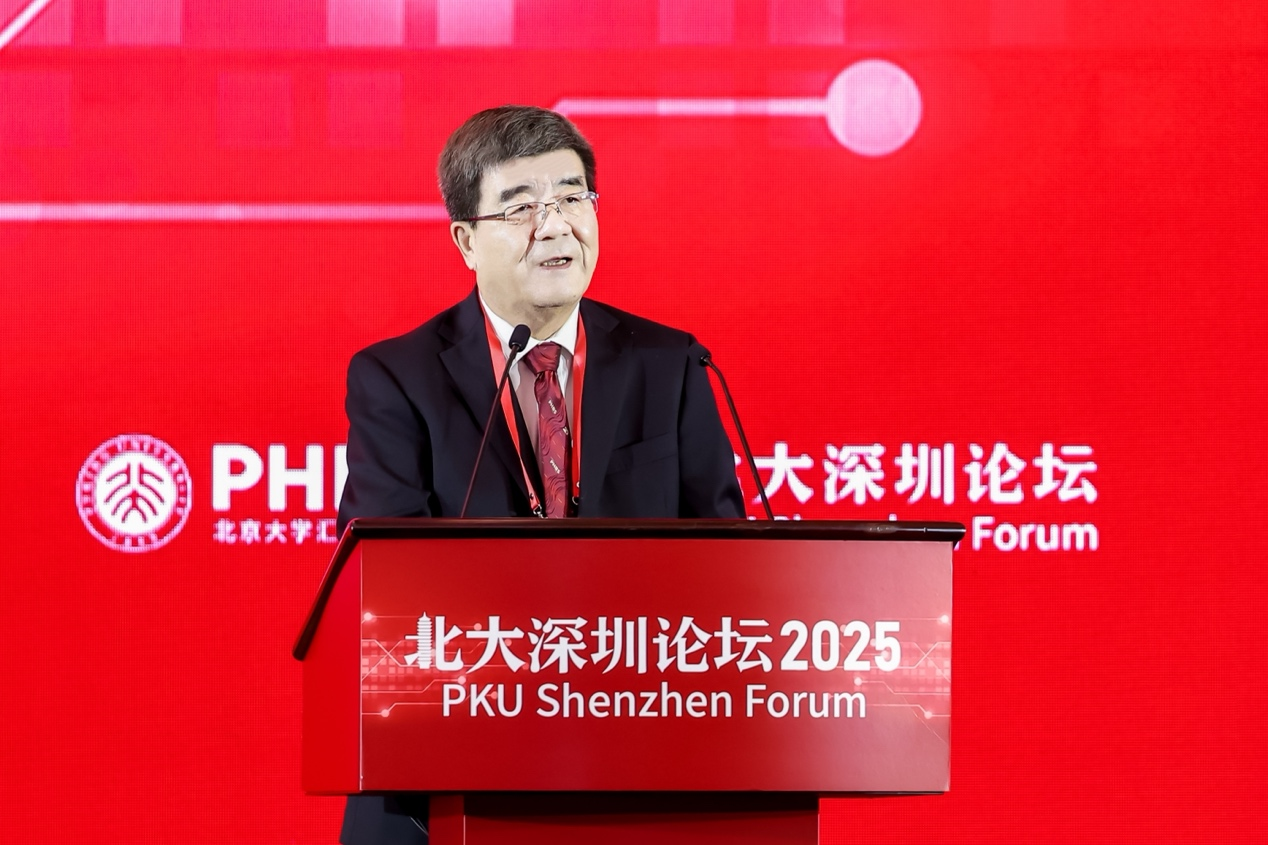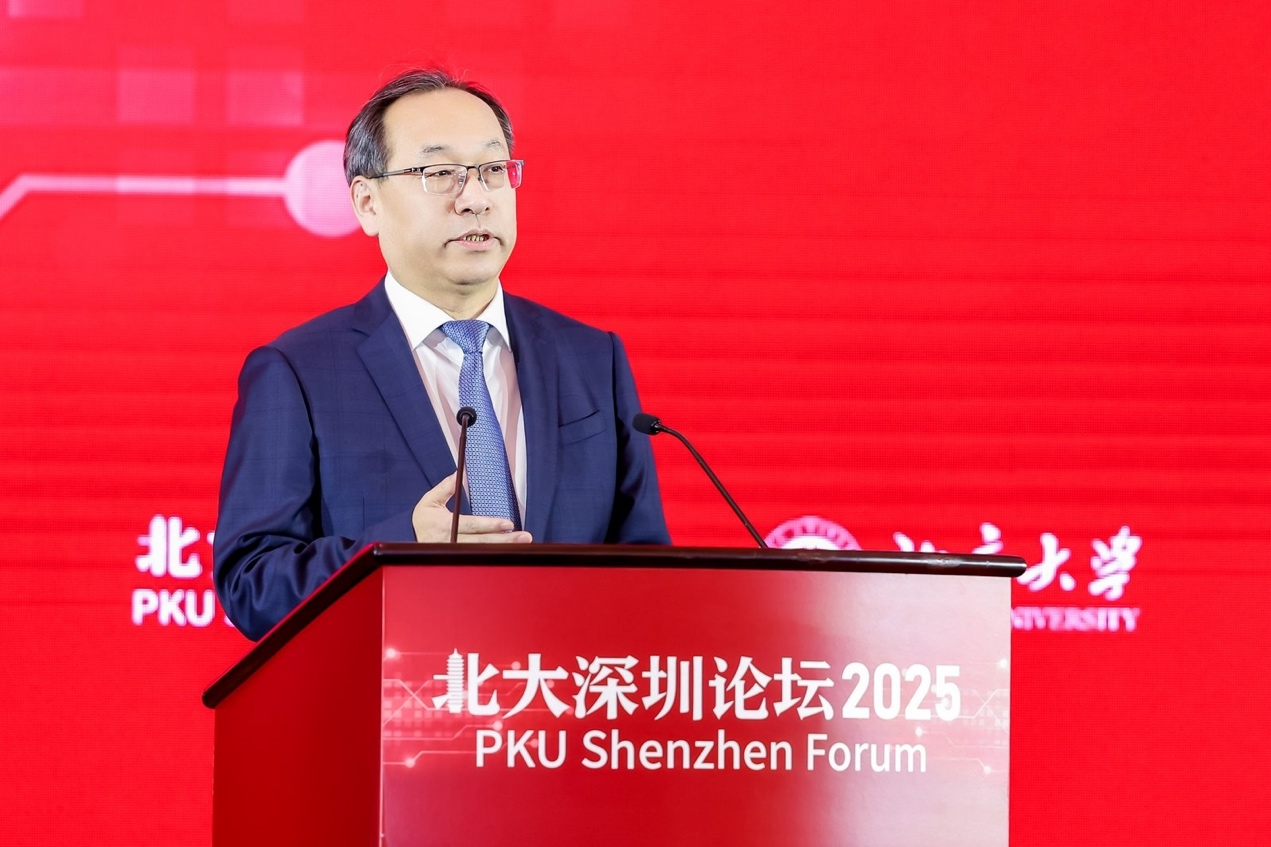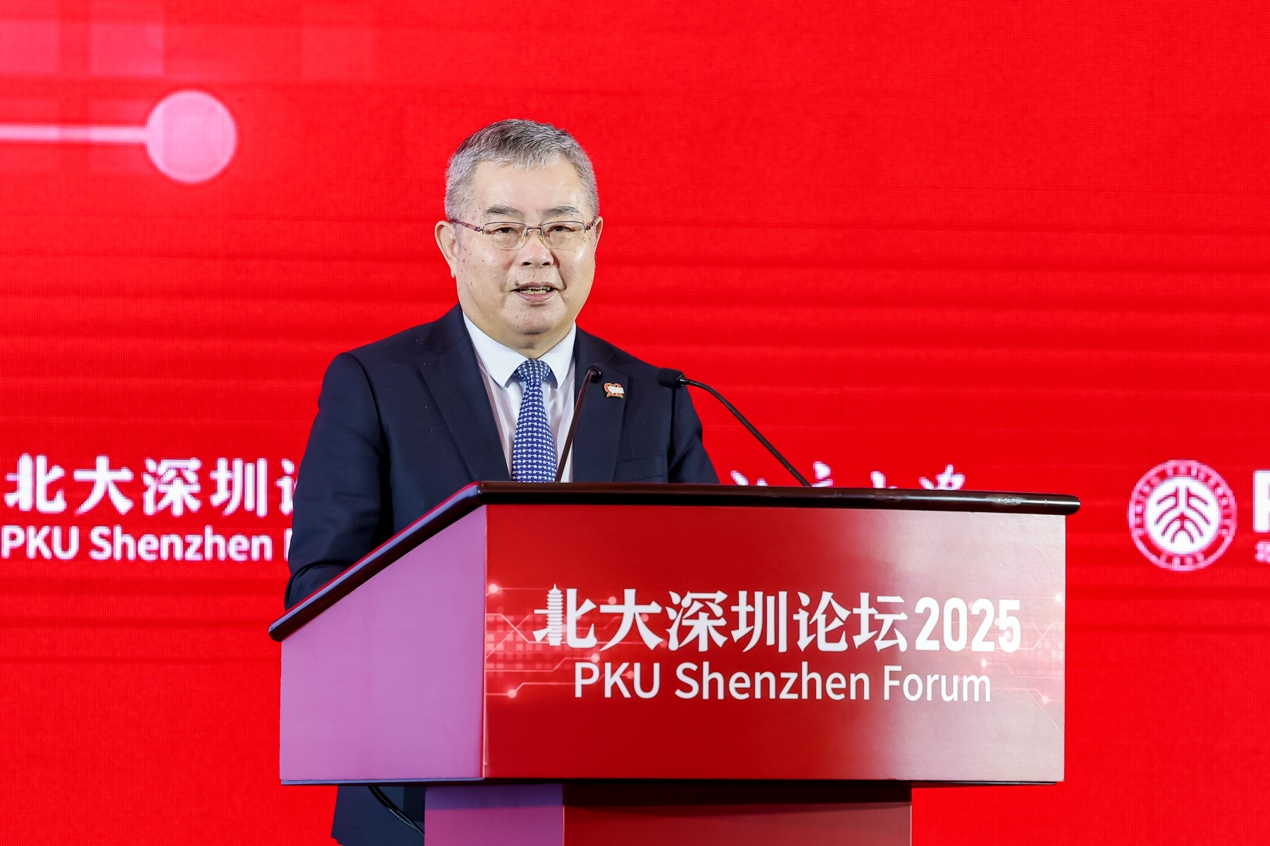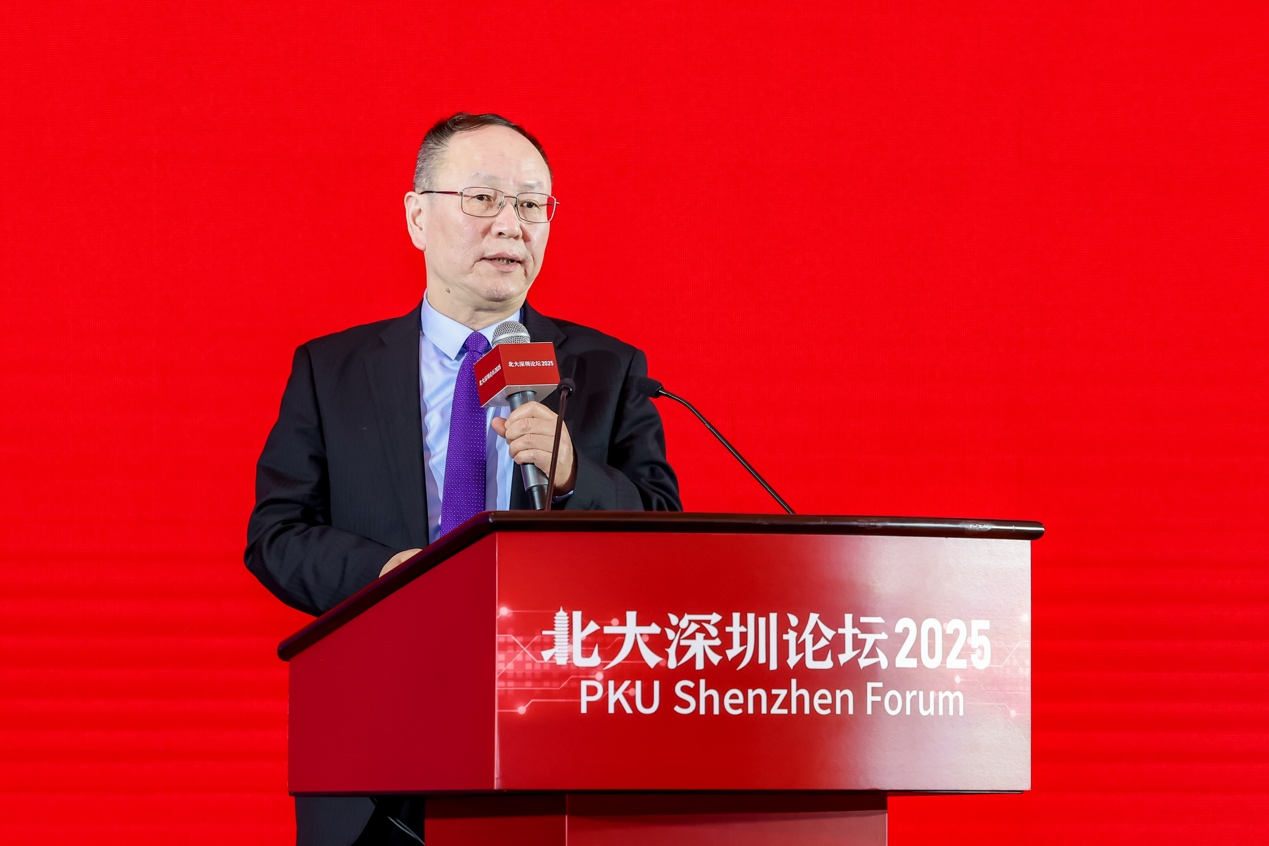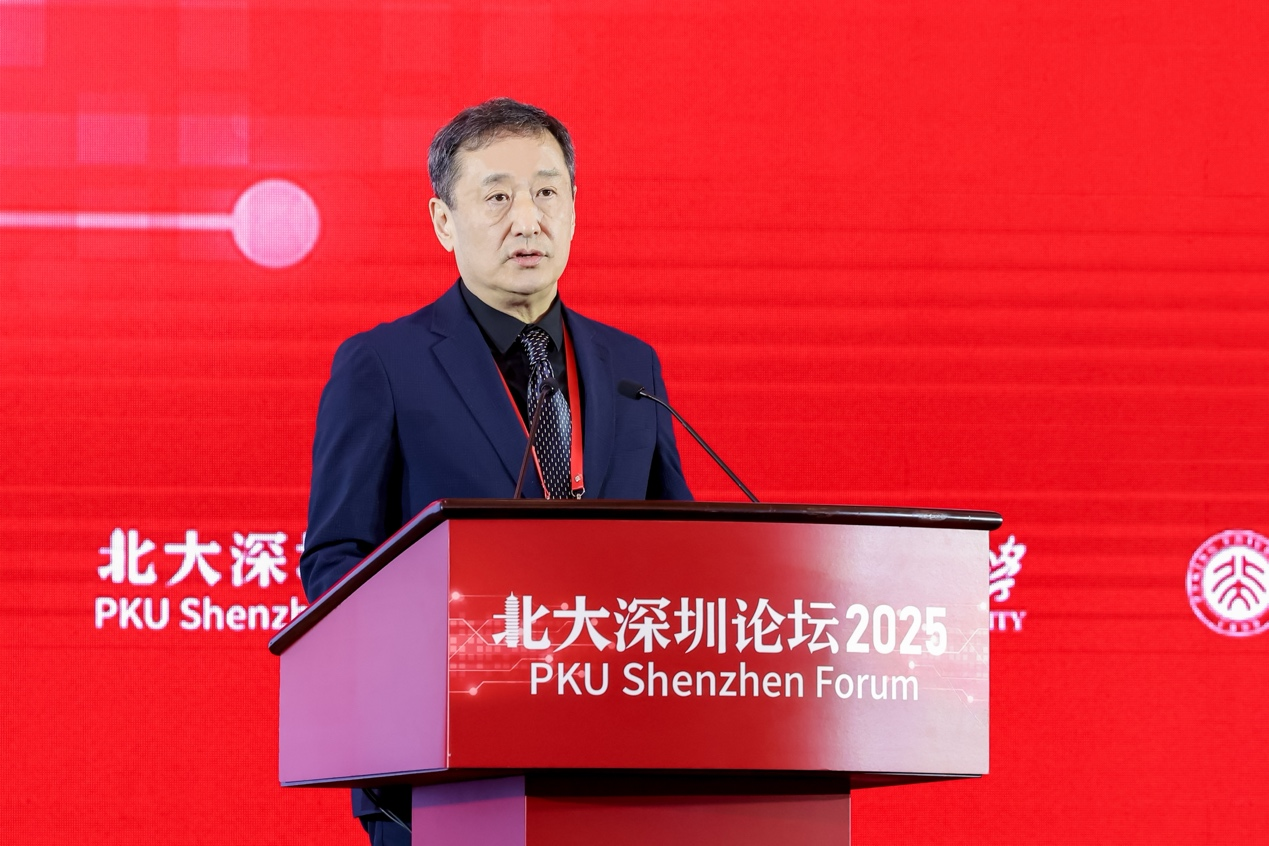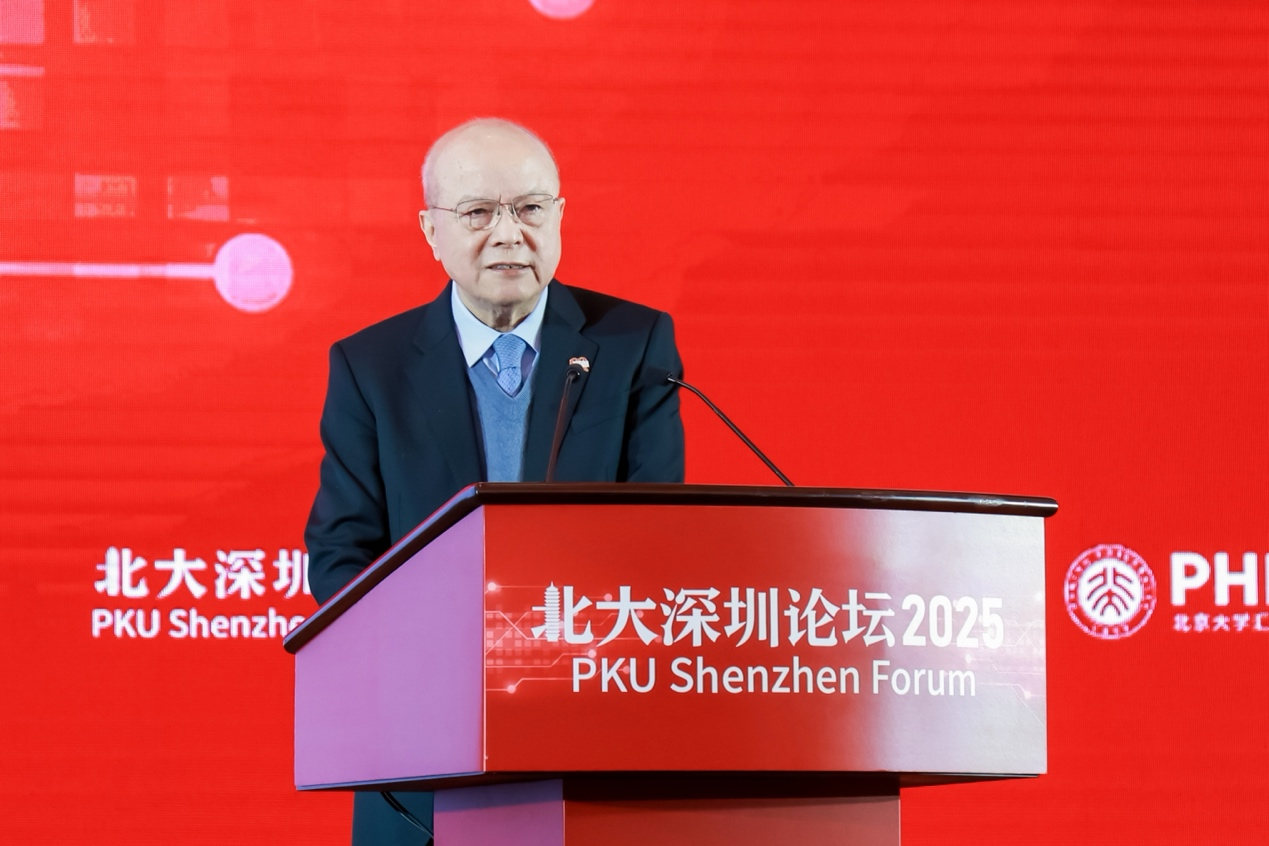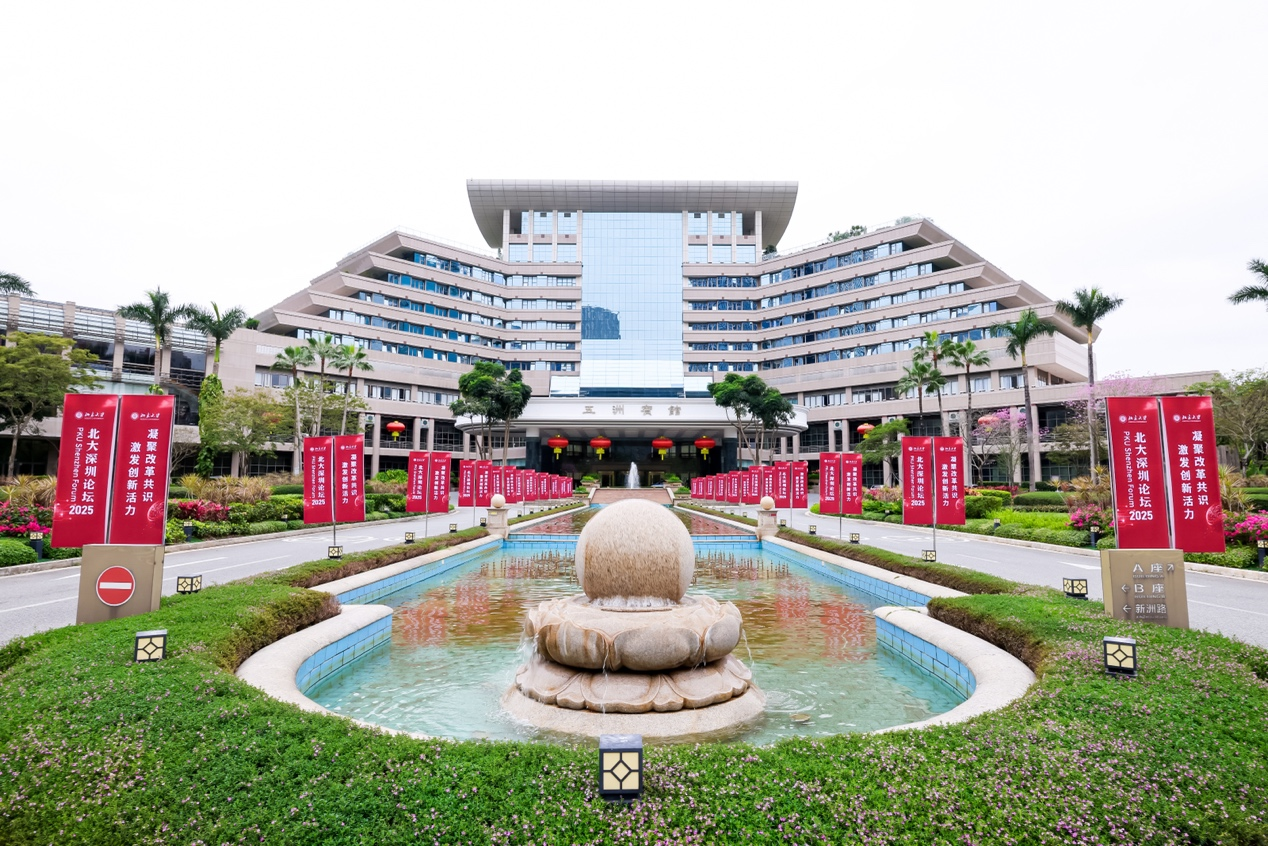Peking University, April 21, 2025: The 2025 Peking University Shenzhen Forum, initiated by Peking University HSBC Business School (PHBS), took place on March 29, drawing over a thousand participants, including leading experts and scholars in economics, technology, and international relations. Under the theme “Forging Consensus for Reform, Unleashing Innovation Vitality”, the forum provided a platform for in-depth discussions on macroeconomics, technological innovation, global affairs, and reform-driven development.
The opening of the PKU Shenzhen forum
Hai Wen, Vice Chairman of Peking University Council (former Vice President) and Founding Dean of PHBS, presides over the forum
In his welcoming speech, Hai Wen emphasized the forum's timeliness amid global economic and political upheavals and rapid technological advancements. He highlighted “reform” and “innovation” as the forum’s two key themes. He also stated that deepening reform and continuous innovation have been the cornerstones of China’s development over the past four decades and remain the driving forces for overcoming future challenges. He expressed confidence that the keynote speeches by five distinguished speakers would offer profound insights and valuable perspectives to the public.
Zhang Jin, Member of the Chinese Academy of Sciences, Member of the Standing Committee of the Party Committee of Peking University, Vice President of Peking University, and Chancellor of PKU Shenzhen Graduate School
In his keynote speech, “AI for Science(AI4S): The Path of China’s AI Development,” Zhang Jin explored the role of artificial intelligence(AI)in accelerating scientific research. He introduced AI4S, an interdisciplinary approach leveraging AI to enhance research efficiency and facilitate scientific breakthroughs. He outlined four key areas—computing power, models, data, and applications—where China can further its AI research, emphasizing the need to digitalize scientific studies, build research platforms, and foster interdisciplinary talent to establish a uniquely Chinese AI-driven innovation path.
Li Yang, Member of the Chinese Academy of Social Sciences and Chairman of the National Institution for Finance & Development
Li Yang gave a keynote speech titled “Analysis of the Macroeconomic Situation,” providing an analysis of China’s macroeconomic performance in early 2025. He noted that policy measures have stabilized economic growth, yet challenges persist, including reliance on external demand, weak consumer spending, and sluggish private investment. He recommended proactive fiscal and moderately accommodative monetary policies to sustain economic momentum. Regarding AI’s rapid expansion across industries, he called for leveraging China’s institutional strengths to foster AI adoption while addressing its challenges through comprehensive social policies.
Wang Yiming, Vice Chairman of the China Center for International Economic Exchanges
In his keynote speech, “Technological Innovation as a Catalyst for High-Quality Development,” Wang Yiming emphasized that the ongoing technological revolution is reshaping global power dynamics and intensifying competition among major economies. He underscored the urgent need for China to transition toward new productive forces driven by innovation. To achieve this, he proposed enhancing original innovation capabilities, fostering a synergy between education, science, and talent development, and promoting a technology-finance-industrial ecosystem that sustains high-quality economic growth.
Wang Yizhou, Peking University Boya Distinguished Professor, Vice President of the China National Association for International Studies, and Director of the Institute of Area Studies at Nanjing University
In his keynote speech, “Global Affairs and China’s Diplomacy: New Opportunities and Challenges,” Wang Yizhou analyzed the “new normal of uncertainty” in global affairs, stressing that conventional wisdom has limitations in understanding the evolving international landscape. He highlighted both the opportunities brought by China’s deepening integration with the world and the challenges, including safeguarding overseas interests and enhancing soft power. He concluded that major-power competition is ultimately determined by internal resilience rather than external rivalry, urging China to strengthen its global standing through continuous self-improvement.
Lu Mai, former Vice Chairman of the China Development Research Foundation
In his keynote speech titled “Investing in People — Starting from Early Childhood in Rural Areas,” Lu Mai underscored the importance of human capital investment in driving high-quality development and achieving common prosperity. He detailed China’s advancements in human capital development and the government’s commitment to this endeavor. Emphasizing early childhood as a critical period for cognitive, linguistic, and socio-emotional growth, he advocated for enhanced nutrition, scientific early education, and increased societal and governmental support to ensure equitable access to quality education and sustainable economic development.
The forum venue
Established in 2007, the PKU Shenzhen Forum has evolved into a premier flagship event in Shenzhen. Since moving off campus in 2021, it has expanded its focus beyond economics and finance to encompass a broader range of topics, including technology and international relations. Serving as a bridge between academic thought leadership and practical implementation, the forum has become a vital platform for Peking University to contribute intellectual insights and for Shenzhen to explore innovative applications. Looking ahead, it aims to strengthen further its role in connecting cutting-edge research with pressing global challenges, contributing to the advancement of Shenzhen, the Greater Bay Area, and China’s overall development.
Written by: Jiang An
Edited by: Donya Mehrabi, Chen Shizhuo
Source: PHBS
